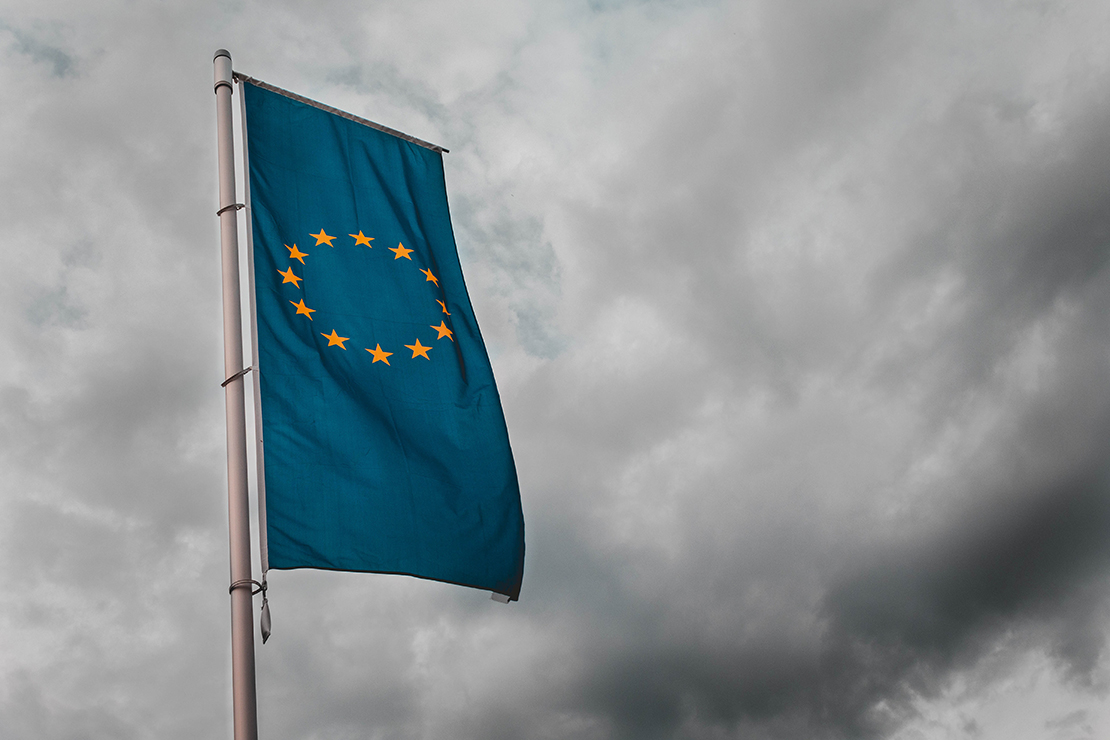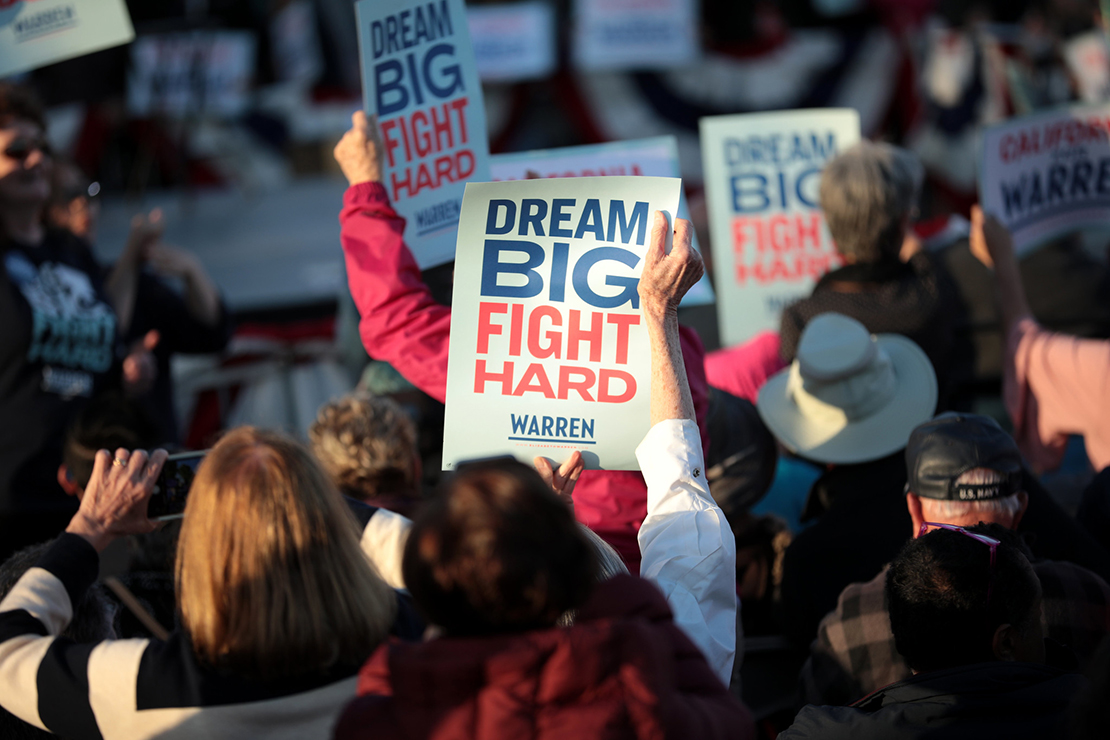Authors

Marije Renate Luitjens-Tol
peace and conflict studies, human rights, identity studies and political scienceOnly a year ago, the Democratic field in the USA painted a positive picture as the most diverse in history, with a group of six different women vying for the Democratic nomination. On the 5th of March however, following four of her female colleagues, Elizabeth Warren officially dropped out of the USA presidential campaign. Tulsi Gabbard, the only women left in the race, receives only 1 to 2 percent in the national polls; the race has thus essentially narrowed down to two white, over middle-aged men: former Vice President Joseph R. Biden Jr. and Senator Bernie Sanders.
As a former Harvard law professor, Elizabeth Warren has dedicated her career to at first help keeping families out of financial issues, and later to fighting corruption. Her presidential campaign has mostly focused on the promise to bring forward deep changes that address economic inequality and eradicate corruption. Warren has had a prominent voice in the aftermath of the 2008 financial crisis, pleading for stricter financial oversight. Following this, she was elected to the US senate in 2013. Elizabeth Warren decided to run for president “to end Washington corruption and make our government work for everyone — not just the rich and powerful”. Merely a week ago, she ended her campaign with the words: “Our work continues, the fight goes on, and big dreams never die,” Warren said. “Thank you from the bottom of my heart.”
The drop-out of Warren leads once again to the crucial question: what is the effect of the (unconscious) gender bias in voting behavior of the USA residents? Various research has been conducted regarding this topic, with similar results: while a majority of independents and democrats indicate to be comfortable, or even ‘very ready’ for a female president, the belief remains that their neighbours might be less accepting. In a poll conducted by Ipsos in June of 2019, 74 percent of the Democrats and Independents said to be comfortable with a female president themselves, but believed that only 33 percent of their neighbours would also be tolerant. More shocking even is that 14 percent of the respondents indicated to be of the opinion that women are less effective in politics than men. Similarly, a poll conducted by LeanIn.org, a women’s empowerment organization, indicates that 58% of the respondents think it will be harder for a woman to win the elections; the majority of them (88%) thinks this is because “many Americans aren’t ready to elect a woman president”. This belief, that ‘many Americans aren’t ready’, influences how people vote in the primary elections. As the report from LeanIn.org explains, the less ready people think that other voters are, the less likely they are to vote for a woman themselves. Or, as the report reads “In contrast, voters are far more enthusiastic about voting for a woman when they rightly think Americans are ready” (p.12).
Following this, the organization published an interactive article indicating in what obstacles women face when running for office, in comparison to men. It is here explained that women, among others, are often judged for their appearance, driving attention away from the statements that are made. At the same time, women are often seen as ‘too emotional’, not capable of making rational decisions. As the report argues: “This dynamic can lead people to see a woman with an opinion—especially if she expresses it with conviction—as being excessively emotional”. These obstacles, among many others, have also clearly influenced the presidential race of Elizabeth Warren, as the Senator has been repeatedly referred to as ‘antagonistic and angry’. According to an article in the Washington Post, Warren was repeatedly criticized by two of the (then) leading male candidates in the Democratic presidential primary race — Joe Biden and Pete Buttigieg. Buttigieg claimed that Warren was “so absorbed in the fighting that it is as though fighting were the purpose”. Amanda Hunter, who works for the Barbara Lee Foundation (an organization that conducts research into women’s equality and their representation in American politics), also explained that labelling women as ‘emotional’ is “a well-worn strategy when it comes to attacking women’s qualification to serve an office”. It makes women less likeable, more difficult to trust and it consequently results in people voting for someone else, most likely a man. Coincidently, the rise in criticism (on various fronts), coincided with a strong drop in polls.
While it is undeniable that the likelihood of a female president has increased significantly over the last decades, the drop out of Elizabeth Warren also shows how little progress there has been made in the last four years. Pema Levy, a journalist for the nonprofit organization Mother Jones, even explains that the recent history of Clinton’s defeat forms an extra obstacle for female candidates in this race. After the gender issues during the previous campaign, there is, according to Brian Schaffner, a political scientist at Tufts University, a fear that nominating another woman might not be sufficient to win the 2020 elections. As Tessa Stuart writes, “you can’t meaningfully address a problem like gender bias that half of the population refuses to acknowledge even exists”.
USA not ready for a female president? The effect of an unconscious gender bias

 Download PDF
06/04/2020
Download PDF
06/04/2020Share article
Related Espresso Insights
March 4, 2024
Espresso.Insights
Passport Hangover: What’s next after Spain’s Kosovo breakthrough?

January 16, 2023
Espresso.Insights
Recognized but not supported: Hungary's stance on Kosovo's EU bid

Latest Publications
April 24, 2024
Policy Analysis
Tracking Kosovo's Commitment: Monitoring Adherence to the Venice Commission Rule of Law Checklist in ...
April 8, 2024
Policy Analysis
Reflecting on the Third Year of Kurti II: Setbacks and Achievements in Rule of Law, Public Administr ...
March 22, 2024
Policy Analysis




